In recent years, medical advancements have introduced innovative treatments for weight loss, including the new weight loss shot that has taken the health world by storm.
Designed to address chronic weight management, this injectable medication offers hope to millions struggling with obesity and related health conditions.
In this guide, we’ll break down everything you need to know about this weight loss shot, including its benefits, costs, risks, and how it compares to other weight loss options.
Understanding the New Shot
Definition and Mechanism of Action
The new weight loss shot is a glucagon-like peptide-1 receptor agonist (GLP-1 RA) that mimics the hormone GLP-1, which plays a key role in regulating appetite and blood sugar levels.
- GLP-1 Function: Signals the brain to reduce hunger and increase feelings of fullness.
- Appetite Suppression: Helps users eat smaller portions and avoid overeating.
- Blood Sugar Regulation: Stabilizes glucose levels, preventing sugar spikes that lead to increased hunger.
This dual action of appetite suppression and blood sugar regulation makes it highly effective for weight management.
How it Differs from Other Weight Loss Drugs
The new shot stands out among weight loss injections because:
- It targets multiple receptors in the body, enhancing its effectiveness.
- Approved specifically for chronic weight management, not just short-term weight loss.
- Effective in individuals with both obesity (BMI ≥ 30) and those who are overweight (BMI ≥ 27 with additional health risks).
Wegovy and Ozempic: Two Popular Options
Wegovy and Ozempic are two popular weight loss medications that have gained significant attention in recent years.
Both medications contain the active ingredient semaglutide, a glucagon-like peptide-1 (GLP-1) receptor agonist. GLP-1 is a hormone that helps regulate blood sugar levels and appetite, making it a powerful tool in the fight against obesity.
Wegovy is specifically approved for chronic weight management in adults with obesity or overweight, while Ozempic is primarily used to treat type 2 diabetes.
Despite their different primary uses, both medications have been shown to be effective in promoting weight loss and improving glycemic control.
In clinical trials, patients who received Wegovy or Ozempic experienced significant weight loss, with some studies showing participants lost up to 15% of their body weight.
Additionally, both medications have been shown to improve cardiovascular risk factors, such as blood pressure and lipid profiles, making them valuable options for comprehensive weight management.

Benefits of the New Shot
1. Effective Weight Loss Results for Chronic Weight Management
Studies have shown impressive results:
- 50% of participants lost 15% of their body weight.
- Nearly one-third achieved a 20% weight reduction.
This level of success highlights the medication’s potential for individuals struggling with long-term weight management.
2. Reduced Risk of Heart Attacks, Strokes, and Cardiac Deaths
The new shot is not only effective for weight loss but also for reducing the risk of cardiovascular disease:
- Lower risk of heart attack and stroke.
- Improved cholesterol and blood pressure levels.
This dual benefit makes it a valuable treatment for individuals with heart conditions.
3. Improved Overall Health and Well-being
Beyond weight loss, the new shot contributes to:
- Lower waist circumference.
- Better insulin sensitivity.
- Improved cholesterol levels.
These improvements have a cascading effect on overall health, enhancing quality of life. Additionally, weight loss achieved through this medication can help reduce the risks associated with fatty liver disease.
Eligibility and Administration
Criteria for Eligibility
The weight loss shot is recommended for individuals who meet specific health criteria based on their body mass index (BMI):
- BMI of 30 or higher (obese).
- BMI of 27 or higher with an obesity-related health condition (e.g., diabetes, high blood pressure).
How the Shot is Administered and Dosed
- Administration: Weekly subcutaneous injection (under the skin).
- Dosage: Typically starts at a lower dose and gradually increases to 2.4 milligrams weekly.
Importance of Proper Dosing
Following the prescribed dosing schedule is critical to:
- Minimize side effects.
- Ensure consistent and effective results.
Patients should always follow their healthcare provider’s recommendations to avoid complications.

Side Effects and Risks
Common Side Effects
While most users tolerate the medication well, common side effects may include:
- Nausea
- Diarrhea
- Vomiting
- Abdominal discomfort
- Constipation
These side effects typically resolve as the body adjusts to the medication.
Rare but Serious Side Effects
In rare cases, more severe side effects may occur, including:
- Kidney failure
- Gallbladder problems
- Pancreatitis
- Low blood sugar (hypoglycemia)
- Depression or mood changes
If you experience any severe symptoms, consult your healthcare provider immediately.
Long-term Risks and Concerns
The long-term effects of the shot are still under study. Patients who have lost weight using this medication may experience significant weight regain if they discontinue treatment. Regular follow-ups with your healthcare provider are essential to monitor your health while using this medication.
Stopping Treatment: Risks and Considerations
Stopping treatment with Wegovy or Ozempic can lead to significant weight regain and a deterioration in glycemic control.
Clinical trials have shown that patients who discontinued these medications often experienced substantial weight regain, with some studies indicating participants regained up to 50% of the weight they had lost.
This rebound effect underscores the importance of ongoing treatment for sustained weight management.
Moreover, discontinuing Wegovy or Ozempic can also lead to worsening cardiovascular risk factors, such as increased blood pressure and unfavorable changes in lipid profiles.
Therefore, it is crucial to carefully weigh the risks and benefits of stopping treatment and to discuss any concerns with a healthcare provider.
A healthcare professional can provide guidance on how to manage weight and health conditions effectively, even if discontinuation becomes necessary.
Cost and Insurance Coverage
Cost of the New Shot
The price of weight loss injections can vary based on location, provider, and insurance coverage.
- Without Insurance: Traditional pharmacy costs for weight loss injections often range between $1,000 to $1,500 per month.
- With Insurance: Coverage depends on individual health plans, with some insurers covering part or all of the cost, while others may require high out-of-pocket expenses.
Insurance Coverage and Availability
Some insurance plans may cover weight loss medications, especially if prescribed for conditions such as diabetes or obesity-related health risks. However, insurance coverage can be unpredictable and may require:
- Pre-authorization before approval
- Documentation of medical necessity
- Specific eligibility criteria set by the insurer
A Better Alternative
At Mixx Health and Wellness, we eliminate insurance roadblocks and excessive costs, providing physician-prescribed weight loss plans starting at $120, for a more accessible and affordable alternative.

Lifestyle Changes and the New Shot
Do You Still Need to Diet and Exercise to Lose Weight?
Yes, the weight loss shot is not a magic solution for losing weight.
- A balanced diet and regular exercise remain essential for sustainable weight loss.
- The medication works best when paired with healthy lifestyle habits.
Importance of Healthy Habits
Developing sustainable habits ensures long-term success:
- Portion control
- Reduced sugar intake
- Consistent physical activity
How the New Shot Can Aid in Lifestyle Changes
- Reduced hunger cravings.
- Improved energy levels.
- Stable blood sugar levels.
- Reduces blood sugar levels, aiding in the management of Type 2 diabetes.
These benefits make it easier to stick to a healthier routine.
Alternative Weight Loss Options
While Wegovy and Ozempic are effective weight loss medications, they may not be suitable for everyone. Alternative weight loss options include lifestyle modifications, such as diet and exercise, as well as other weight loss medications.
Lifestyle modifications, such as reducing caloric intake and increasing physical activity, can be effective for weight loss. However, these changes can be challenging to maintain, and the weight loss achieved may be slower compared to medication.
Other weight loss medications, such as orlistat and phentermine-topiramate, offer different mechanisms of action and may have varying side effect profiles. These alternatives can provide additional options for individuals seeking to manage their weight effectively.
Addressing Concerns and Misconceptions
Separating Fact from Fiction
Misconceptions about weight loss shots can create confusion. Common myths include:
- “The shot works without any effort.” → False. Lifestyle changes are still essential.
- “It’s unsafe for everyone.” → False. Most side effects are mild and manageable.
Future of Obesity Treatment
The introduction of the new shot is just the beginning:
- Research continues to refine and improve weight loss medications.
- Broader applications may emerge for other metabolic disorders.
- Potential to treat diabetes and other metabolic disorders.
Genetic Causes of Weight Gain
Weight gain is a complex phenomenon influenced by multiple genetic and environmental factors.
Research has identified several genetic variants associated with an increased risk of weight gain and obesity. For example, variants in the FTO gene have been linked to a higher risk of obesity, while variants in the MC4R gene are associated with an increased risk of weight gain.
Additionally, genetic variants in the GLP-1 receptor gene have been connected to a higher likelihood of weight gain and obesity.
Understanding the genetic causes of weight gain can help healthcare providers develop personalized treatment plans for patients with obesity or overweight.
Genetic testing may also be useful in identifying individuals at high risk of weight gain and obesity, allowing for early intervention and tailored treatment strategies.
This personalized approach can enhance the effectiveness of weight management efforts and improve overall health outcomes.
Key Advice for Those Considering the New Shot
1. Importance of Consulting a Doctor
Always consult a healthcare professional before starting the weight loss shot. They can:
- Assess your health history.
- Determine eligibility and risks.
- Guide you through the dosing schedule.
2. Weighing the Pros and Cons
Consider both the benefits and potential risks. While effective, the medication may not be suitable for everyone.
3. Making an Informed Decision
Educate yourself on how the medication works, its costs, and its role in your weight loss journey.

Frequently Asked Questions
1. What is the new shot people are taking to lose weight?
It’s a GLP-1 receptor agonist medication designed for chronic weight management.
2. How much weight can you lose on the shot in 3 months?
On average, patients lose 5–10% of their body weight within three months.
3. Can you lose 20 pounds in a month on the shot?
Rapid weight loss varies by individual, but it’s generally not recommended to aim for such drastic results.
4. Are the results permanent?
Weight maintenance requires ongoing lifestyle changes and, in some cases, continued use of the medication.
The New Shot to Lose Weight: What You Need to Know Conclusion
The latest weight loss injection is a major breakthrough in obesity treatment, offering a proven method to regulate appetite, balance blood sugar levels, and support long-term fat loss. For individuals struggling with weight management, this medication provides a scientifically backed solution to achieve and maintain a healthier lifestyle.
However, lasting success depends on more than just the medication. Combining it with a nutritious diet, regular exercise, and consistent medical supervision is essential for achieving sustainable results.
At Mixx Health and Wellness, we offer physician-prescribed weight loss plans starting at $120, making medical weight loss affordable and accessible. Before starting treatment, consult with a healthcare provider to ensure this approach aligns with your individual health goals and long-term wellness plan.

